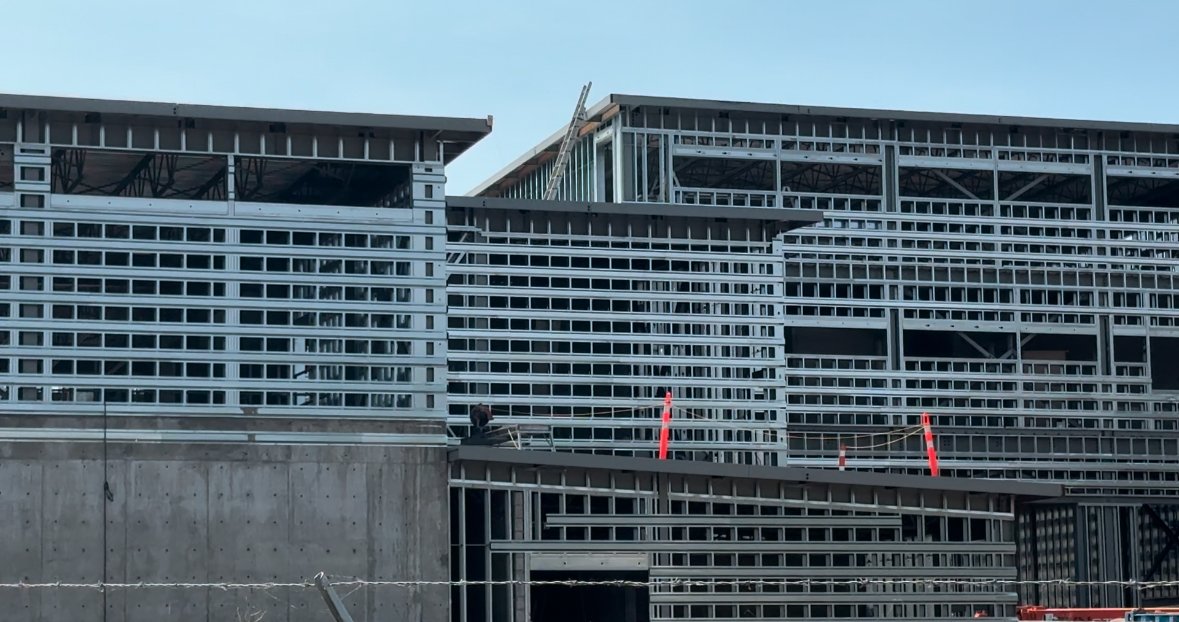Scope changes reason for cost overruns - Report
By Alex McCuaig
The residuals management facility at the city’s water treatment plant.
Cost overruns at the city’s water treatment facility came in with a bang to start 2024 with councillors blaming the province for costly delays. But the second multi-million-dollar budget increase for the project at the last meeting of the year went out with a whimper.
January’s first city meeting of the year saw councillors fired up about the initial $3.8 million cost overrun, citing a year of foot-dragging by Alberta Environment in providing regulatory approval for the delay.
Coun. Robert Dumanowski vowed to bring attention to the issue during that January meeting where he voted against the city providing additional funding.
“I would love nothing more than to see the province have to – from bureaucrat to bureaucrat – deny commensurate funding model to offset the increased costs,” stated an irate Dumanowski. “I’d like to have them speak to that defence because simply making that adjustment in my mind opinion is abdicating our responsibility for the public purse.”
But a consultant’s report which came with the $4.1 million second budget overrun in less than a year had a different conclusion on the causes of the delay. Namely, the province couldn’t approve a project that it didn’t have, only receiving the final design in December 2022. And once it received it, approval was given to start the project in January 2023.
Dumanowski said nothing during Monday’s meeting during the debate to increase the project’s budget to over 26 per cent of the original cost and which he voted to support on Monday.
The report on the project’s cost overruns by Brian Maksymetz, Better Projects lead consultant, found the cost overruns were unavoidable in the post-COVID construction boom. That, coupled with skilled workers shortages and supply chain issues, resulted in similar projects across the country witnessing even higher cost overruns.
Brian Maksymetz, Better Projects lead consultant, presents his report to council Monday night. Full report can be found on the bottom of this article.
Maksymetz found that despite city officials submitting a “complete” design in December 2022, that really wasn’t the case with scope changes coming in throughout 2023 and 2024.
“The cost overruns on the project are mostly due to the delayed or late realization of required scope of the project,” Maksymetz told councillors Monday. “That is to say, that the different contractors that were hired would get into the work and find these details aren’t complete and had to ask for some clarification from the city. Clarification would come and there would be scope additions that would have been required for the project.”
In response to his presentation Coun. Darren Hirsch stated, “I’m pleased to see there was no scope creep.”
File photo of the residuals management facility from August.
Councillors were also provided a briefing note which stated, “the overage is not due to uncontrolled scope growth or scope creep,” putting blame on the design engineering firm for not capturing complete costs.
City officials began looking at the project starting in at least 2016 as increased provincial regulations regarding particulate matter discharges from water treatment facilities into the South Saskatchewan River were coming into effect.
The city commissioned a design of the project in 2018 which estimated construction costs at $26.5 million.
In 2022, that amount was reviewed and then sought through a grant from the province. Provincial officials provided that full cost for construction of the facility that same year.
In both his report and presentation to council Monday, Maksymetz said a silver lining to the situation was that the city acted as general contractor for the project offsetting further cost increases. As well, the use of local contractors assisted in flexibility due to delays caused by incomplete design features. If that wasn’t the case, cost overruns would be even higher.
But he also concluded some of the city’s multiple corporate restructuring in the last five years impacted that aspect of the work on the project.




